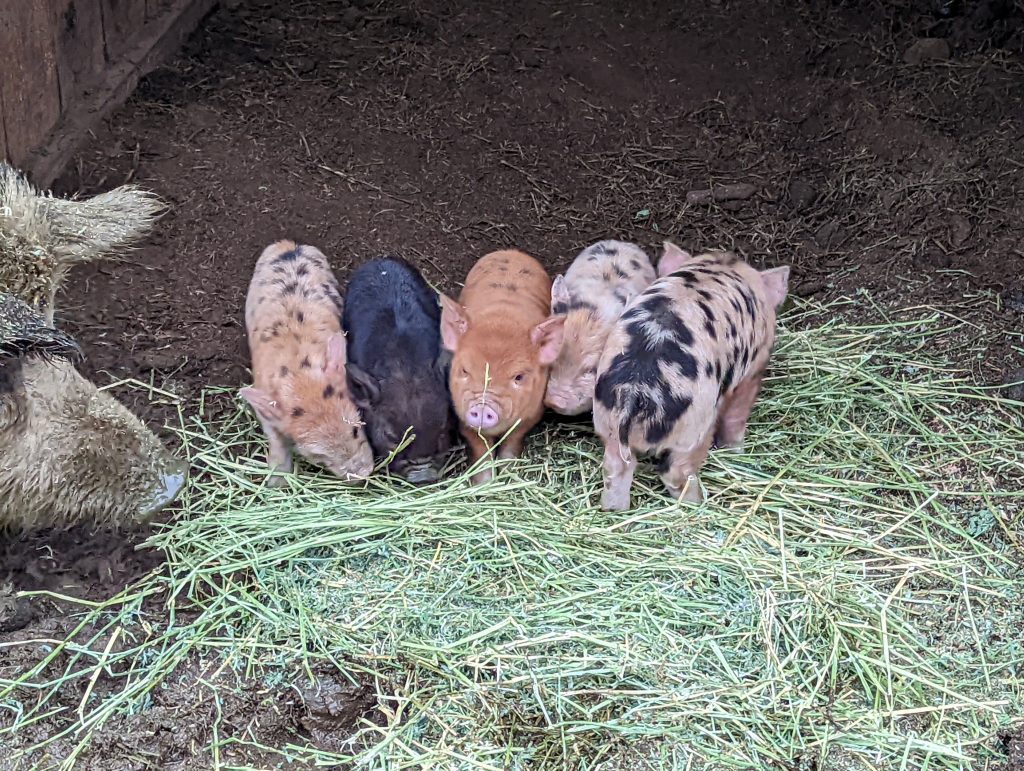
Kune Kune Pigs: A Unique and Fascinating Breed
The Kune Kune pig, a charming and distinctive breed, has been capturing the hearts of farmers, homesteaders, and animal enthusiasts alike. Known for their endearing appearance, friendly temperament, and manageable size, these pigs are a delightful addition to small-scale farms and hobby homesteads. Originating from New Zealand, the Kune Kune (pronounced “koo-nee koo-nee”) offers an intriguing blend of cultural history, utility, and companionship.
Origins and History
The Kune Kune pig’s roots trace back to New Zealand, where they were domesticated by the indigenous Māori people. The name “Kune Kune” translates to “fat and round” in the Māori language, which aptly describes their plump, sturdy physique. Historically, these pigs were kept as treasured livestock by Māori communities, often living close to human settlements.
Although their exact origins remain somewhat mysterious, it is believed that Kune Kune pigs were introduced to New Zealand by European settlers or explorers in the 18th century. Over time, the breed became well-integrated into Māori culture, and their gentle demeanor made them suitable for traditional practices.
By the mid-20th century, the Kune Kune pig population had drastically declined, teetering on the brink of extinction. However, dedicated conservation efforts in the 1970s and 1980s by New Zealanders Michael Willis and John Simister helped revive the breed. Today, Kune Kune pigs are thriving and have gained global recognition.
Physical Characteristics
Kune Kune pigs are easily recognizable by their compact size, rounded body, and distinctive wattles—also known as “piri piri”—that hang from their lower jaws. While not all Kune Kune pigs have wattles, they are a signature trait of the breed and add to their unique charm.
They come in a wide variety of coat colors and patterns, including black, brown, cream, ginger, and spotted combinations. Their bristly hair ranges from short to long and can have a straight or curly texture. Adult Kune Kunes typically weigh between 100 and 250 pounds and stand about 24 to 30 inches tall, making them smaller and more manageable than commercial pig breeds.
Temperament and Behavior
One of the most appealing traits of Kune Kune pigs is their friendly and sociable nature. They are often described as “dog-like” due to their eagerness to interact with humans and their playful personalities. Unlike some pig breeds that can be skittish or aggressive, Kune Kunes are gentle and thrive on attention and companionship.
Their intelligence and trainability also make them a joy to have around. Many owners report successfully teaching their Kune Kunes basic commands, tricks, and even leash training. These pigs are also known for their laid-back demeanor, rarely exhibiting destructive or unruly behavior.
Diet and Grazing Habits
Kune Kune pigs are natural grazers, which sets them apart from many other pig breeds. They thrive on a diet of pasture grass, supplemented with vegetables, fruits, and pig-specific feed when necessary. Their grazing habits make them environmentally friendly and cost-effective to raise, as they require less supplemental feed compared to larger commercial pigs.
This breed’s ability to efficiently convert grass into energy is one of the reasons they are well-suited for small-scale farming. Their dietary needs make them an excellent choice for those looking to manage pastureland or maintain a sustainable, low-impact farm.
Uses and Benefits
Kune Kune pigs are versatile animals that serve multiple purposes. While they are not typically raised for large-scale commercial meat production due to their smaller size, they are prized for their high-quality, flavorful meat in niche markets. Additionally, their manageable size and friendly demeanor make them ideal pets or companion animals for families.
On farms, Kune Kune pigs can play a valuable role in land management. Their grazing habits help control weeds and promote healthy pasture growth. They are also less likely to root and dig compared to other pig breeds, which minimizes damage to the land.
For homesteaders and small farmers, Kune Kune pigs offer the perfect balance of utility and companionship. Their low-maintenance requirements, coupled with their endearing personalities, make them a rewarding addition to any farm.
Health and Care
Kune Kune pigs are generally hardy and healthy animals, but like all livestock, they require proper care and attention. Providing access to clean water, shelter, and a balanced diet is essential for their well-being. Regular veterinary check-ups and vaccinations are also important to prevent diseases and ensure a long, healthy life.
Because they are prone to obesity if overfed or under-exercised, it’s crucial to monitor their diet and grazing habits. Providing adequate pasture space for grazing and opportunities for physical activity will help keep them in optimal health.
Global Popularity
In recent decades, the Kune Kune pig has gained popularity beyond New Zealand, finding homes on farms and homesteads around the world. Their gentle nature, unique appearance, and adaptability have endeared them to farmers and animal lovers in countries like the United States, United Kingdom, and Australia.
Organizations dedicated to Kune Kune pigs, such as the American Kune Kune Pig Society (AKKPS), have played a significant role in promoting the breed and maintaining breed standards. These groups also provide resources and support for Kune Kune pig owners, helping to ensure the breed’s continued success.
Conclusion
Kune Kune pigs are a truly remarkable breed with a rich history, captivating appearance, and endearing personality. Whether as companion animals, pasture managers, or niche meat producers, they offer a unique combination of utility and charm that has won the hearts of people worldwide.
As awareness of sustainable farming practices grows, the Kune Kune pig’s role in small-scale agriculture is likely to become even more significant. Their low-maintenance requirements, environmental benefits, and friendly disposition make them a perfect fit for those seeking a harmonious and rewarding relationship with their livestock.
I hope you enjoyed this deep dive into Kune Kune pigs! Let me know if there’s anything else you’d like to learn about them—or anything else! 🐖